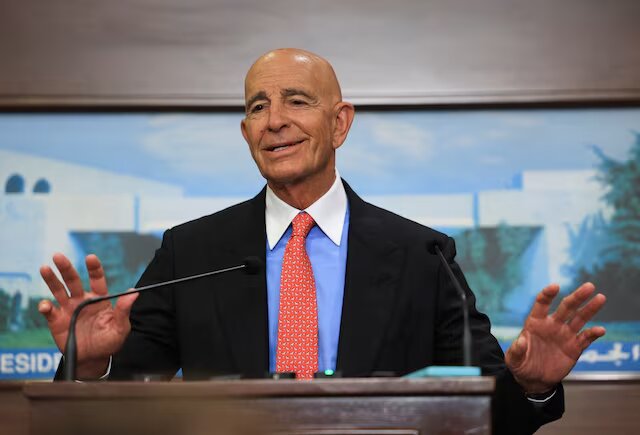Will the government drag Lebanon toward anarchy on Friday?

BEIRUT—Lebanon will open a new stage in the conflict over the Resistance’s weapons next week despite Israel’s clear rejection of US envoy Thomas Barrack’s proposal, which originally aimed to impose security and military control, not just political control, over Lebanon.
It should be noted that the unstable regional situation forced the election of President Joseph Aoun and the appointment of Nawaf Salam to form a government at the beginning of this year. Subsequently, the Israeli enemy—under the auspices of Washington, Riyadh, and their mercenaries in Lebanon—tried and continues to attempt to obstruct the Resistance’s recovery.
Before the approval of Barrack’s proposal, Hezbollah preferred to avoid threatening language in its statements and was not willing to enter into any conflict with any Lebanese faction.
When Hezbollah agreed to many government decisions to avoid clashing with the President of the Republic or the Prime Minister, the Israeli occupying entity assumed there was a basis for besieging the Resistance and forcing it to make military concessions, just as it had made concessions on political issues.
However, matters have reached a stage where Hezbollah has been forced to adopt a very clear discourse, as demonstrated by Hezbollah Secretary-General Sheikh Naim Qassem, when he affirmed that the Resistance will not surrender its weapons and is even prepared, if necessary, for a “Karbala-like battle.”
For his part, Parliament Speaker Nabih Berri warned against blindly responding to the decision to undermine the Resistance.
The brazenly hostile behavior of the American delegation accompanying Barrack—particularly Senator Lindsey Graham who admitted that the US administration is not considering demanding any action from Israel before the Lebanese government begins disarming Hezbollah—prompted Berri to warn against pushing the army toward a clash with the resistance movement, given its disastrous impact on civil peace.
Meanwhile, political circles have said US deputy envoy Morgan Ortagus will accompany the commander of US Central Command (CENTCOM) to Lebanon at the end of this week for quick security meetings. Ortagus’ meetings will be limited to Lebanese security officials, not political leaders.
In this context, Haaretz wrote that “the Lebanese timetable is known for its extreme flexibility,” revealing that Barrack will not be satisfied with Aoun and Salam’s statements regarding the exclusive possession of weapons by the state, and will demand a clear executive decision.
Meanwhile Hezbollah MP Ali Mekdad, a member of the Loyalty to the parliamentary Resistance bloc, have said, “Hezbollah and Amal Movement ministers have not yet decided whether to participate or boycott the cabinet session, and deliberations are still ongoing,” adding, “Hezbollah has called for postponing discussions on any sovereignty issue until a defense strategy is decided.”
For its part, the anti–Resistance team’s position was expressed by the wife of Lebanese Forces leader, Strida Geagea, who stressed that “the era of control of the statelet [Resistance] over the state has ended irrevocably.”
She claimed that Friday’s session is not “just a routine meeting of the Council of Ministers, but rather a pivotal event that places Lebanon before a real battle for sovereignty, because the Lebanese army is the backbone of the entity and the safety valve for stability and civil peace.”
It remains to be seen whether the government will back down from the decision and move toward internal dialogue, or will it implement American-Saudi dictates.
Leave a Comment